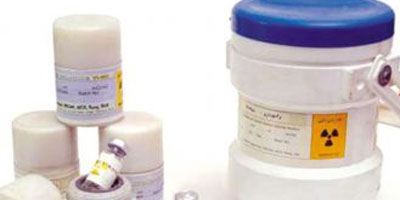ID :
333930
Tue, 07/01/2014 - 10:37
Auther :
Shortlink :
https://oananews.org//node/333930
The shortlink copeid
Iran self-sufficient in producing 15 radioisotopes

TEHRAN,July 1(MNA) – The Nuclear Research Center, through cooperation with the Presidential Office for Scientific and Technical Affairs, has succeeded to produce 15 types of radioisotopes used in cancer treatment and rare diseases, the center announced on Monday.
Nuclear Research Center is affiliated to the Atomic Energy Organization of Iran (AEOI).
The production of these medicines has largely reduced Iran’s dependence on importation of such medicines.
The Nuclear Research Center also plans to produce 13 new types of radioisotopes in the future.
Radioisotope is a radioactive isotope which is used in physical and biological researches and therapeutics.
The radioisotopes which are produced in Iran are mainly used for diagnosis and treatment of various cancers or are used to alleviate cancer-related pains.
According to the 20-Year Outlook Plan, Iran now is among the leading countries in mastering technical know-how in producing radioisotopes.
Until 2008, some of these medicines, which are now mass produced by the Nuclear Research Center, were imported into the country, explained Jalilian, the executive director for production of radioisotopes.
For example, he said, a medicine like Metastron cost patients 70 million rials (2,200 dollars) but now that the medicine is produced in the country its price has been reduced to 3 to 4 million rails (94-125 dollars).
Even its efficiency is better than its foreign kind because in the process of transportation the medicine loses some of its effectiveness, he added.
Iran ranks first in the production of radioisotopes in the region and this success was made despite “unjust” sanctions imposed on the country, Jalilian said.
Jalilian said Iranian scientists started research on producing radioisotopes in early 1980s.
He went on to say that through consultations with 20 nuclear medicine centers and medical sciences universities across the country a decision was made to produce 30 types of radioisotopes, which were mostly needed in the country, and finally the work for production of 20 of them was started.
Jalilian said now some European and African countries are customers of radioisotopes produced in Iran.
The sanctions on the country created some problems for production of such medicines but through reliance on domestic specialists the sanctions had the least effect on the work of researchers, he said.
He added sanctions even increased Iranians’ knowledge of the field and this trend is “irreversible”.





